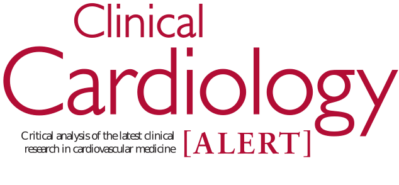
Clinical Cardiology Alert – November 1, 2019
November 1, 2019
View Issues
-
When and How to Stop Dual Antiplatelet Therapy After PCI
Among patients with high-risk percutaneous coronary intervention who had completed three months of dual antiplatelet therapy with ticagrelor, patients who were randomized to ticagrelor alone experienced similar ischemic outcomes and a lower risk of bleeding at one year compared with those maintained on ticagrelor and aspirin.
-
Predicting Chemotherapy Cardiotoxicity
Administering trastuzumab after a course of anthracycline therapy for breast cancer can result in cardiac toxicity. Serial echocardiograms in this study showed that a lower initial left ventricular ejection fraction before anthracycline therapy and the amount of decrease in ejection fraction after the anthracycline course are predictive of subsequent trastuzumab cardiac toxicity.
-
Planning Therapy for Severe Tricuspid Regurgitation
A retrospective study of moderate to severe secondary tricuspid valve regurgitation showed that right ventricular systolic dysfunction (but not dilatation alone) is predictive of all-cause mortality.
-
Safety of Carvedilol for Cocaine Users
The use of beta-blockers in cocaine users is controversial, and there are few data on their use in cocaine-associated heart failure. This prospective, observational, registry study of cocaine-associated heart failure patients showed that carvedilol is safe and effective in such patients.
-
Cardiac Arrest in Takotsubo Syndrome
Investigators sought to determine whether secondary prevention interventions could reduce the mortality rate of takotsubo patients with cardiac arrest.
